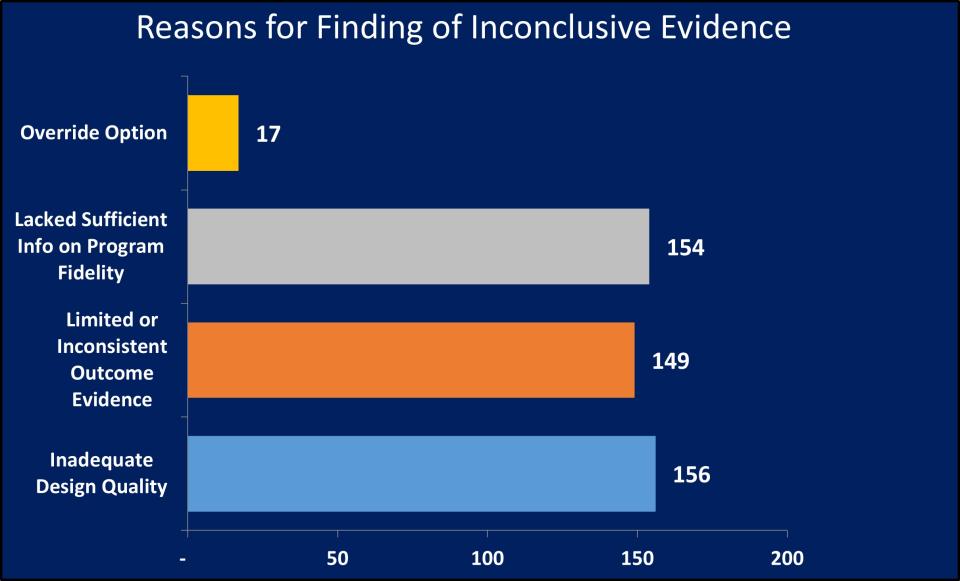Reasons for Findings of Inconclusive Evidence
| Reason | Number of Programs |
|---|---|
| Override option | 17 |
| Lacked Sufficient Info on Program Fidelity | 154 |
| Limited or Inconsistent Outcome Evidence | 149 |
| Inadequate Design Quality | 156 |
Data presented as of September 2023
Inadequate Design Quality: studies do not provide enough information or have significant limitation in the study design (for example, small sample size, threats to internal validity, high attrition rates, etc.) such that it is not possible to establish a causal relationship to the justice-related outcomes.
Limited or Inconsistent Outcome Evidence: studies are well-designed (although there may be some limitations) but showed inconsistent or mixed results such that it is not possible to determine the overall impact of the program on justice-related outcomes.
Lacked Sufficient Info on Program Fidelity: studies are rigorous and well-designed and generally show no significant effects on justice-related outcomes, but sufficient information was not provided on fidelity or adherence to the program model such that it is not possible to determine if the program was delivered as designed.
Override Option: the override option is available to study reviewers, and can be used when the reviewers feel that no confidence can be placed in the results. Reviewers must provide details for their reasoning. Examples of reasons the study reviewers may use the override option include (1) anomalous findings that contradict the intent of the program and suggest the possibility of confounding causal variables, and (2) utilization of inappropriate statistical analysis to examine the outcome data. The override option results in an automatic rejection of a study.

